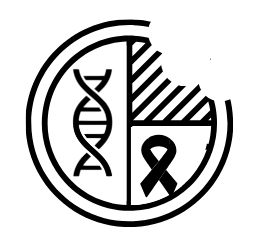Reading time: 4 minutes Aya Elmeligy Tumor heterogeneity and lung cancer progression Intratumor heterogeneity is a key concept in the evolution and progression of many tumors, including lung cancers. As a tumor grows, its DNA continually develops mutations to overcome the effects of therapies. The cells that acquire these mutations are known as a subclone.... Continue Reading →
Take a Deep Breath… or Not: The Link Between Air Quality and Lung Cancer
Reading time: 3 minutes Melanie Padalino On February 3, 2023, a freight train carrying a large amount of vinyl chloride (a carcinogen) derailed in East Palestine, Ohio. The “clean-up” consisted of a controlled burn of the vinyl chloride, but this in turn generated a host of other hazardous chemicals including hydrogen chloride and phosgene which... Continue Reading →
Non-small cell lung cancer and immunotherapy
Reading time: 4 minutes Indiwari Gopallawa Cancer is the second leading cause of death after cardiovascular diseases in the United States and has a major impact on society. Lung cancer is the second most common cancer type and is associated with lower survival rates and higher cancer-related deaths, accounting for 25% of all cancer-related deaths... Continue Reading →
Smoke and Mirrors: The E-cigarette Epidemic
Vicky Tan Reading time: 3 minutes Whilst the current attention of many healthcare workers is devoted to battling COVID-19, another epidemic is quietly brewing in the background. Dakota Stephenson is a 15-year old from Sydney, Australia, who was recently admitted into an intensive care unit for three days as her lungs were filling up with... Continue Reading →
Biological Differences in Non-Small Cell Lung Cancer by Race
Nisitha Sengottuvel Reading time: 4 minutes A study by Mitchell and colleagues published in Clinical Cancer Research sought to understand how the genetic differences between African Americans and European Americans could be changing the way lung tumors behave. In order to answer this question, the researchers looked at seven different Baltimore hospitals that had about... Continue Reading →
Repurposing existing vaccines for cancer treatment
Reading time: 5 minutes Prathyusha Konda For the past decade, a growing area of cancer research has been focused on cancer immunotherapies. From the Nobel prize-winning checkpoint inhibitor therapy to cancer vaccines, the idea behind immunotherapies is to boost or activate the immune system. While the therapies being developed may be new, the idea behind... Continue Reading →
How liquid biopsies could help monitor cancer treatment
Reading time: 3 minutes Alejandra Canales Finding treatments for lung cancer is hard because, simply-put, cancerous cells are extremely stubborn, and patients with non-small cell lung cancer can often acquire resistance to a treatment regimen. Researchers have been exploring the feasibility of “liquid biopsies,” whereby a non-invasive blood sample could be used to obtain information... Continue Reading →
Helping Our Body’s Killers Kill off Cancer, Naturally
Nisitha Sengottuvel At OncoBites, we’ve talked about many facets of cancer, the many internal and external factors that can affect tumor growth, and the established and developing methods to detect and treat cancer. We’ve also begun to cover the many ways in which biomedical science falls short in effectively treating cancer. Being diagnosed with cancer... Continue Reading →
Bone found to abet Lung Cancer
Natasha Vinod Rudolph Virchow was one of the first physicians to study diseases from the standpoint of cells. He applied his cell theory “Omnis cellula e cellula” ("every cell originates from another cell") to the study of cancer and reasoned that cancer results from the failure of the regulatory mechanism of the cells to control... Continue Reading →









